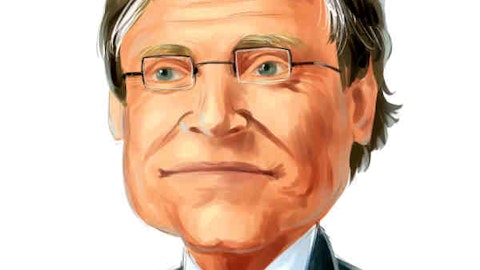That doesn’t mean high quality dividend growth stocks don’t see price declines in bear markets… These stocks fall as well, but not as much, on average. Case-in-point, the Dividend Aristocrats Index fell 22% in 2008, while the S&P 500 fell 38%.
The image below shows the investing performance of the 10 most recession-proof Dividend Aristocrats:
As you can see, 2 Dividend Aristocrats (Wal-Mart and McDonald’s) actually posted double-digit positive returns during the 2008, while the S&P 500 fell 36%.
Recession-Resistant Industries
Specific industries tend to perform better than others during recessions. Among the worst performers are airlines, hotels, and casinos. People simply spend less extravagantly when times get tough.
6 of the most recession-proof industries are shown below, along with a brief description of what makes them resistant to recessions.
– Fast Food: People substitute more expensive restaurants for fast food during recessions.
– Health Care: You cannot ‘put off’ important medical procedures
– Discount retail: People look for bargains when income falls
– Waste Disposal: The garbage must be collected regardless of the overall economy
– Alcohol & Tobacco: People look for an escape when times get tough
– Essential Household Goods: Tissues, toilet paper, and other staples must be purchased
The 6 industries above have specific characteristics that help them to fight off the most severe effects of recessions. The 3 bear market stocks below are all worthy holds to protect your portfolio against recessions.
Bear Market Stock to Buy: Wal-Mart Stores, Inc. (NYSE:WMT)
From the beginning of 2007 to the end of 2009, the S&P 500 declined 15.9%. Wal-Mart Stores, Inc. (NYSE:WMT), on the other hand, gained 19.1%.
Wal-Mart is an ideal bear market stock. The company is known to offer ‘everyday low prices’. When times get tough, consumers look for ways to get discounts on everyday household items. As a result, Wal-Mart tends to do well during recessions.
Just how well? The company’s earnings-per-share each year through the Great Recession of 2007 to 2009 are shown below:
– 2007 earnings-per-share of $3.16
– 2008 earnings-per-share of $3.42
– 2009 earnings-per-share of $3.66
Wal-Mart Stores, Inc. (NYSE:WMT) appears undervalued at current prices. The company is trading nearits highest dividend yield ever. Currently, the stock is offering investors a 3.2% dividend yield.
The image below gives a 20 year history of Wal-Mart’s dividend yield to illustrate this point:
Over the last decade, Wal-Mart has grown earnings-per-share at 7.6% a year and dividends at 13.8% a year.
The company currently has a payout ratio of around 30%. Despite its low payout ratio, Wal-Mart will likely grow its dividend in line with earnings-per-share growth (instead of growing dividends faster) as the company is plowing money into future growth initiatives.
Despite recent weak recent results, Wal-Mart’s long-term growth prospects remain bright. Smaller layout Neighborhood Market stores are growing rapidly, as is e-commerce revenue. Additionally, comparable store sales are up in the United States.
If we do enter into another recession, Wal-Mart will likely benefit from increased store traffic and greater sales – and earnings. Regardless of whether we hit another bear market soon – now is the best time ever to buy Wal-Mart stock for dividend investors. The company’s combination of value, potential growth, and safety make it a favorite of The 8 Rules of Dividend Investing.
Wal-Mart is investing heavily in digital sales and better employee compensation. As a result, revenue and comparable store sales are up while profit margins are down.
Earnings-per-share increased 8.2% from 2007 to 2008, and 7.0% from 2008 to 2009. While these are not amazing numbers during a solid economy, they are amazing when one considers the overall economic climate. 2007 through 2009 was a time when many businesses were absolutely struggling – just look at General Motors Company (NYSE:GM), Lehman Brothers, and American International Group Inc (NYSE:AIG).
Investors in Insider Monkey’s database have grown slightly bearish on Wal-Mart however, with the number of investors holding shares of the company declining to 61 from 65 during the third quarter. Kyle Bass’ Heyman Advisors sold off its position in the stock, while billionaire Ken Fisher remains bullish, owning a $1 billion position in the stock.







